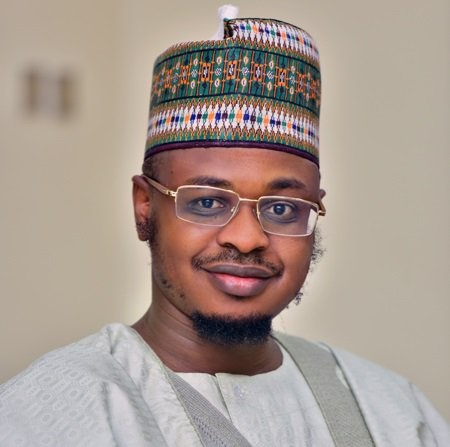The International Telecommunications Union (ITU) estimates that approximately 5.3 billion people – or 66 per cent of the world’s population – are using the Internet in 2022. This represents an increase of 24 per cent since 2019, with 1.1 billion people estimated to have come online during that period. However, this still leaves 2.7 billion people still offline, according to ITU.
In Nigeria, 30 million people still lack access to internet as of October, 2022, according to the Nigerian Communications Commission (NCC). The Executive Vice Chairman of the NCC, Prof. Umar Garba Danbatta, stated this at the maiden Broadband Technical Awareness Forum for Governors (BTAF) organised by the commission in Abuja last week.
- APC crisis: ‘Sacked’ directors accuse Adamu of withdrawing N3bn from ‘secret’ accounts
- Smuggling of migrants threat to economy — NIS
He said that the over 30 million Nigerians affected are not connected to the internet due to infrastructural deficits.
He explained that nations with leading broadband infrastructure are those with the highest Gross Domestic Product (GDP) per capita.
Danbatta said, “When you take a look at the Global Broadband Infrastructure Ecosystem, you will find that the leading broadband infrastructure nations are those with the highest GDP per capita. They include Japan, South Korea, Sweden, Finland, France, Britain and the United States of America. These countries have a GDP per capita between 50,000 to 60,000 dollars.
“With a GDP of over $500 billion, Nigeria has a GDP per capita of only $2,000. With $2000 GDP per capita, we are very close to the bottom in the broadband Infrastructure Ecosystem.”
The NCC study reveals that Fibre Optic Broadband Networks in Nigeria cover less than 25 per cent of the total fibre cables laid in the country even as broadband penetration is still as low as 45%.
Danbatta, who solicited the cooperation and support of the state governments in the provision of broadband infrastructure across the country, said broadband penetration cannot be achieved in Nigeria without the support of states.
He explained that with adequate broadband infrastructure, there will be efficient management, control and use of energy, delivery of health services to the citizenry, guarantee of best and quality education, streamline of the transportation system, better management of the environment and meeting the Sustainable Development Goals (GDP), among others.
Also speaking, the Minister of Communications and Digital Economy, Prof. Isa Ali Ibrahim Pantami, pointed out that broadband penetration is no longer a luxury but a necessity in Nigeria.
The minister noted that the deployment of broadband infrastructure would enhance the security, education and economic growth of states.
Pantami, therefore, urged the governors to cooperate with the federal government to deepen broadband penetration in line with the implementation of the National Broadband Plan.
He further tasked the state governments to create enabling environment through the provision of the Right of Ways as well as avoid multiple taxations to telecom providers.
In his remarks, the governor of Edo State, Mr. Godwin Obaseki, said that Information and Communication Technology (ICT) enables a smarter governance system and that broadband penetration cuts down the cost of governance in the state.
Obaseki said that through one of the initiatives of the state government tagged ‘Edo Best’, over 15,000 teachers have been provided with tablets for teaching.
While assuring that before he leaves office, all the operations of the state will be automated, the governor, however, counselled stakeholders at the federal level to build trust with state governments as well as open channels of communication for everyone to be carried along.
On behalf of the state governors, Obaseki also assured the federal government of their full cooperation on the right of way issue to boost the nation’s digital economy drive.
Obaseki who said broadband penetration is very vital to improve governance in the states also said that the regulator must create a mutual trust for the governors to key into the programme.
“I want to assure the minister and the NCC that states are willing and ready to collaborate and work with you. What we need to do is to build more trust. A few things happened in the past during COVID-19; MTN wanted to give states like Edo access to more broadband but they didn’t get approvals from the regulator.
“When the policy of broadband came out five years ago, states were allocated certain providers but they didn’t have capacity. For Edo State, for instance, we decided to bypass the instruction and went to get another deal with a different provider who had the capacity that was how we were able to get 400km,” the governor said.
Meanwhile, the mobile phone revolution offers numerous benefits including positive effects on economic development, entrepreneurship, education and health care. New programs in both the developed and undeveloped world have had success. But, these advances obscure challenges towards a long-term goal of universal Internet availability.
In a recent paper, Darrell West examines some of the economic and political factors that prevent an estimated 2.7 billion people from accessing the Internet.
Barriers to Internet access
In many countries – even among some of the world’s largest economies – there is a gap in Internet adoption between rural and urban areas. A lack of infrastructure is responsible in many cases for this divide, especially in developing countries like Nigeria.
But West describes how the lack of, “fiber optic lines, cell towers, Internet routers, wireless spectrum, [and] reliable electricity” can inhibit Internet proliferation.
There is considerable variation in Internet adoption among age groups. Seniors in many countries are much less likely to use the Internet. Many people, particularly in rural areas lack literacy in addition to a general understanding of how to use a computer. Both factors create obstacles for potential new Internet users.
Many non-Internet users are also fearful of the technology. There is a general anxiety associated with learning how to use the Internet. Some also describe fear about 21st century threats like, “computer viruses, hacking, surveillance, or identity theft.”
Policies to mitigate the digital divide
- Zero rating services
A lack of disposable income is a major factor that prevents many from gaining Internet access. Users must also pay for data in addition to the cost of a device. Zero rating services circumvent this barrier by providing access to applications that have no associated data costs. For example, Wikipedia makes a zero rated version of their app available, which is free to use. This practice has huge potential to provide the benefits of the Internet to all people. (Source: The Digital Divide)
- Reducing taxes
Nigeria has “connectivity taxes” on mobile and fixed Internet connections. These taxes drive up costs for consumers, which can make the Internet unaffordable for many families. In some cases, it also reduces the incentives for Internet Service Providers to make infrastructure investments in underserved areas. Research has shown that reducing these types of taxes can increase the number of Internet users.
- Diversifying content
English is the primary language of the Internet. This excludes millions of educated people who could use the Internet if the content were available in their native tongue. Expanding the type of content on the Internet would also increase its attractiveness to people around the world. For example, Ghana’s CocoaLink project provides expert information to farmers through text messages. Useful services like these provide an incentive for new users.
The number of Internet users increases every year by hundreds of millions of people. However, the per cent of worldwide Internet penetration has declined from recent peaks. Fortunately, there are a number of options available to governments that seek to mitigate barriers to Internet access for their poorest citizens.
New policies are necessary to make sure that all people regardless of their socio-economic status have access to the benefits of the Internet.

 Join Daily Trust WhatsApp Community For Quick Access To News and Happenings Around You.
Join Daily Trust WhatsApp Community For Quick Access To News and Happenings Around You.


